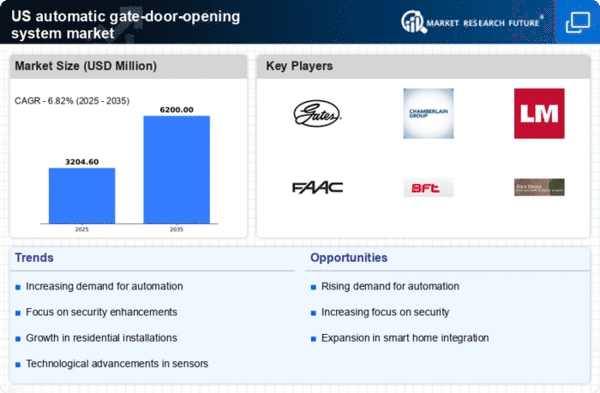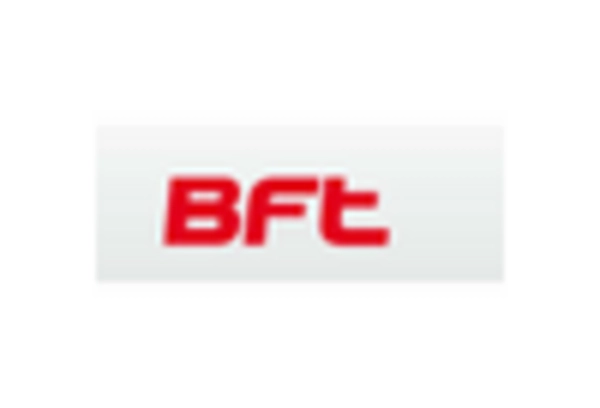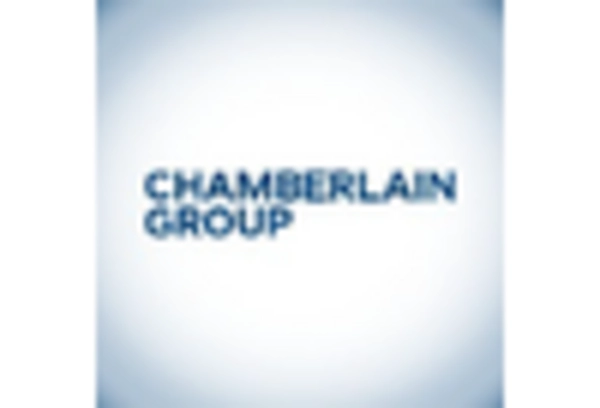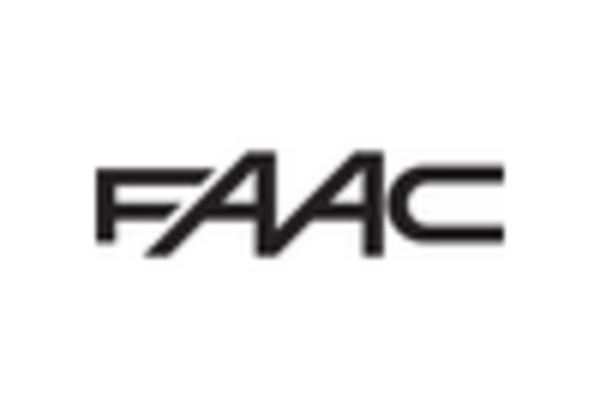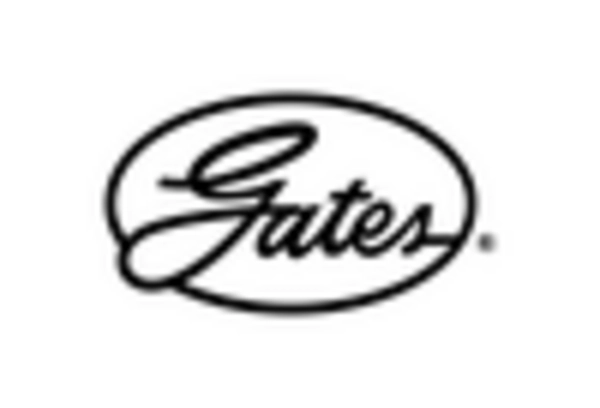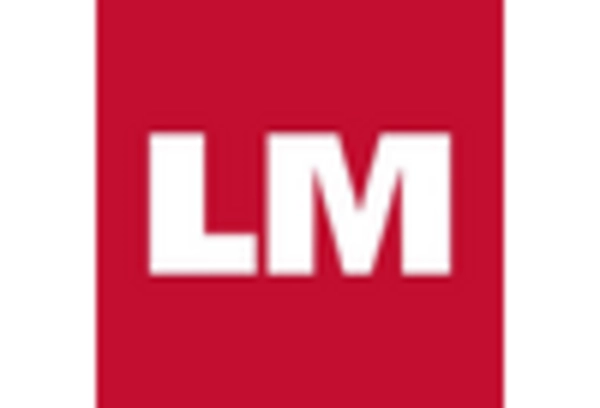Increased Urbanization
Urbanization is a key driver of the automatic gate-door-opening-system market, as more individuals and families move to urban areas. This demographic shift leads to a higher demand for residential security solutions, including automatic gates. In densely populated regions, the need for efficient access control systems becomes paramount. The automatic gate-door-opening-system market is projected to grow by approximately 7% in urban areas as property owners seek to enhance security and convenience. Additionally, urban planners are increasingly incorporating automated systems into new developments, further propelling market growth. This trend indicates a shift towards modern living solutions that prioritize safety and accessibility.
Growing Security Concerns
The increasing emphasis on security in residential and commercial properties drives the automatic gate-door-opening-system market. As crime rates fluctuate, property owners are more inclined to invest in advanced security solutions. The integration of automatic gate systems enhances safety by controlling access and monitoring entry points. In 2025, the market is projected to grow by approximately 8% as consumers prioritize security features. This trend is particularly evident in urban areas where theft and vandalism are more prevalent. The automatic gate-door-opening-system market is responding to these concerns by offering systems equipped with surveillance cameras and remote access capabilities, thereby appealing to a security-conscious clientele.
Technological Advancements
Rapid technological advancements are significantly influencing the automatic gate-door-opening-system market. Innovations such as smart sensors, mobile app controls, and integration with home automation systems are becoming increasingly common. These technologies not only enhance user convenience but also improve system reliability and efficiency. In 2025, the market is expected to witness a growth rate of around 10% due to these advancements. The automatic gate-door-opening-system market is adapting to consumer demands for seamless integration with existing smart home devices, thereby expanding its customer base. As technology continues to evolve, manufacturers are likely to invest in research and development to stay competitive.
Rising Demand for Aesthetic Appeal
The aesthetic appeal of automatic gate-door-opening-systems is becoming a significant driver in the market. Homeowners and businesses are increasingly seeking gates that not only provide security but also enhance the visual appeal of their properties. This trend is particularly pronounced in affluent neighborhoods where property aesthetics are paramount. The automatic gate-door-opening-system market is responding by offering a variety of designs, materials, and finishes to cater to diverse consumer preferences. In 2025, the market is expected to grow by around 5% as consumers prioritize both functionality and design. This dual focus on security and aesthetics is likely to shape future product offerings.
Regulatory Compliance and Standards
The automatic gate-door-opening-system market is influenced by regulatory compliance and safety standards that govern the installation and operation of these systems. As safety regulations become more stringent, manufacturers are compelled to enhance their products to meet these requirements. This compliance not only ensures consumer safety but also fosters trust in the automatic gate-door-opening-system market. In 2025, it is anticipated that adherence to these regulations will drive market growth by approximately 6%. Companies that prioritize compliance are likely to gain a competitive edge, as consumers increasingly prefer products that meet established safety standards.

